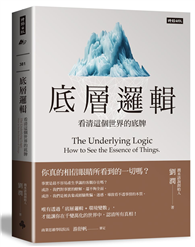In June 1938 Sigmund Freud and his family arrived in London, exiles from Nazi-occupied Austria. Now, seventy years later, Freud’s exile, together with the general exodus of psychoanalysts from the German-speaking world, can be seen as a turning-point in modern cultural history. The displacement of the centre of gravity of the psychoanalytic movement from Vienna to London (and thence - via English translations - to the United States and the wider world) helped make Freud’s theories into one of the most influential intellectual systems of the twentieth century. This book, with contributions from some of the world’s most eminent Freud scholars, marks the fiftieth anniversary of Freud’s exile and discusses its impact on the development of psychoanalysis. The first section examines the specifically Viennese-Jewish origins of Freudian theory and the nature and effects of the psychoanalytic exodus. One chapter considers Freud’s library and his private reading, a study facilitated by the Freud Museum in London. Section two considers the English reception of psychoanalysis. The role of Ernest Jones in transmitting Freud’s ideas is examined, and there are chapters on Adrian Stokes, Wilhelm Stekel and the fate of Freudian analysts in exile, particularly in the United States. Closely linked to the cultural displacement of psychoanalysis is the issue of the translation of Freud’s writing. Section three considers problems involved in such translation and retranslation - and the question of revising the Standard Edition of Freud. The final section identifies perspectives for the future which derive from the continuing psychoanalytic debate. It includes chapters on changing theories of childhood since Freud, Freud and the question of women and feminism, psychoanalysis and anthropology, and Freud’s influence on other forms of psychotherapy. With full scholarly references, documents and illustrations from the Freud archives, many of them reproduced here, this volume demonstrates how Freud’s exile (fulfilment of his wish ’to die in freedom’) stimulated the growth of psychoanalysis in the English-speaking world. It provides an important reassessment of Freud’s contribution to twentieth-century thought.
| FindBook |
有 1 項符合
Freud in Exile: Psychoanalysis and Its Vicissitudes的圖書 |
 |
Freud in Exile: Psychoanalysis and Its Vicissitudes 出版社:Yale University Press 出版日期:1988-07-27 語言:英文 規格:精裝 / 352頁 / 24.1 x 16.1 x 2.79 cm / 普通級/ 初版 |
| 圖書館借閱 |
| 國家圖書館 | 全國圖書書目資訊網 | 國立公共資訊圖書館 | 電子書服務平台 | MetaCat 跨館整合查詢 |
| 臺北市立圖書館 | 新北市立圖書館 | 基隆市公共圖書館 | 桃園市立圖書館 | 新竹縣公共圖書館 |
| 苗栗縣立圖書館 | 臺中市立圖書館 | 彰化縣公共圖書館 | 南投縣文化局 | 雲林縣公共圖書館 |
| 嘉義縣圖書館 | 臺南市立圖書館 | 高雄市立圖書館 | 屏東縣公共圖書館 | 宜蘭縣公共圖書館 |
| 花蓮縣文化局 | 臺東縣文化處 |
|
|
圖書介紹 - 資料來源:博客來 評分:
圖書名稱:Freud in Exile: Psychoanalysis and Its Vicissitudes
Play Therapy: Theory, Research, and Practice
Classwide Positive Behavioral Interventions and Supports: A Guide to Proactive Classroom Management
Prolonged Exposure for Ptsd: Innovations to Improve Access, Engagement, and Outcomes
How Words Help Us Think: An Externalist Account of Representational Intentionality
Theories of Borderline Personality Disorder: Concepts and Empirical Base
Mental Health Virtual Reality: The Power of Immersive Worlds
Therapists’ Sexual Feelings and Fantasies: Research, Practice, Ethics, and Forensics
Dreaming Reality: How Neuroscience and Mysticism Can Unlock the Secrets of Consciousness
Consciousness Demystified
Shift: Managing Your Emotions--So They Don’t Manage You
Classwide Positive Behavioral Interventions and Supports: A Guide to Proactive Classroom Management
Prolonged Exposure for Ptsd: Innovations to Improve Access, Engagement, and Outcomes
How Words Help Us Think: An Externalist Account of Representational Intentionality
Theories of Borderline Personality Disorder: Concepts and Empirical Base
Mental Health Virtual Reality: The Power of Immersive Worlds
Therapists’ Sexual Feelings and Fantasies: Research, Practice, Ethics, and Forensics
Dreaming Reality: How Neuroscience and Mysticism Can Unlock the Secrets of Consciousness
Consciousness Demystified
Shift: Managing Your Emotions--So They Don’t Manage You
|











